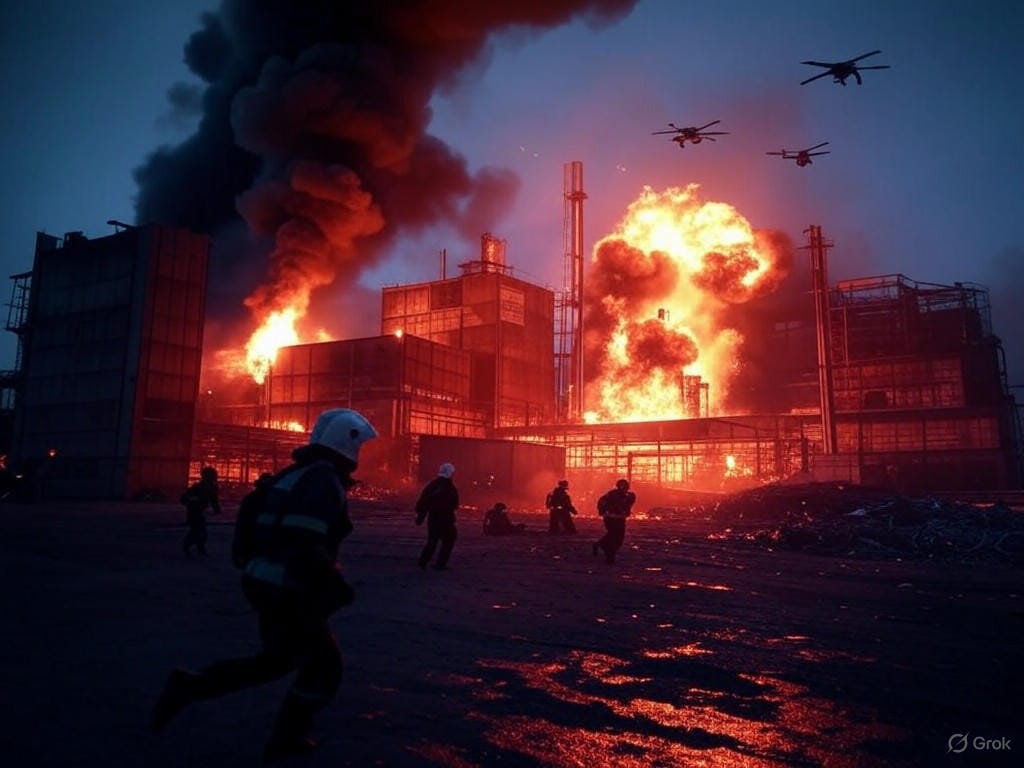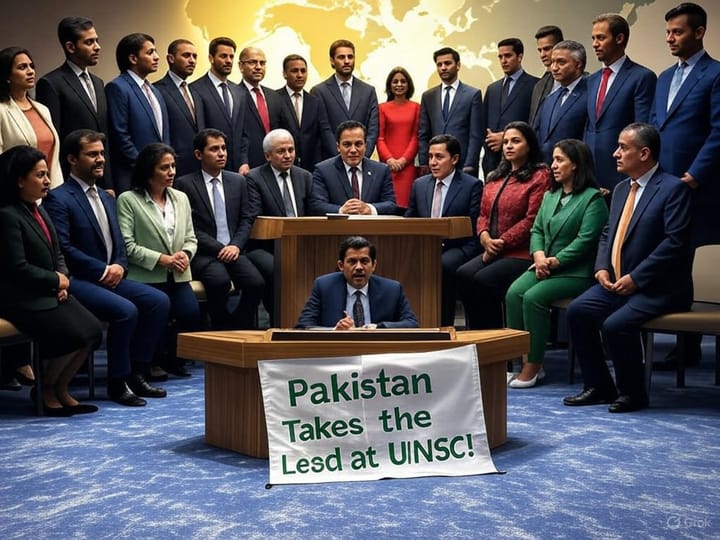Ukrainian Drone Strike Targets Russian Factory in Izhevsk, Casualties Reported

In a significant escalation of hostilities between Ukraine and Russia, the Ukrainian Security Service (SBU) has reportedly conducted a drone strike on a drone-manufacturing plant in Izhevsk, Russia, located approximately 1,200 kilometers (750 miles) east of Moscow. According to local Russian officials, the attack resulted in the deaths of three individuals and injured dozens more, marking a notable instance of Ukraine’s long-range strike capabilities deep within Russian territory. This incident underscores the intensifying use of drone warfare in the ongoing conflict and has elicited sharp responses from both Russian and Ukrainian authorities.
Details of the Strike in Izhevsk
The attack occurred in the early hours of the morning, targeting a facility in Izhevsk, a city in the Udmurt Republic known for its industrial contributions to Russia’s defense sector. Local officials reported that the strike hit a plant believed to be involved in the production of military drones, a critical component of Russia’s modern warfare arsenal. The facility, though not officially confirmed by Russian authorities as a military site, has long been rumored to play a role in supplying unmanned aerial vehicles (UAVs) for use in the conflict in Ukraine.
According to statements from the head of the Udmurt Republic, Alexander Brechalov, the drone strike caused significant damage to the factory’s infrastructure. “Three of our citizens have tragically lost their lives, and preliminary reports indicate that 27 others have sustained injuries of varying severity,” Brechalov stated in a televised address. He added that emergency services were deployed to the scene immediately, with efforts focused on rescuing those trapped under debris and providing medical assistance to the wounded. Russian media outlets broadcast images of smoke rising from the damaged facility, with shattered windows and structural damage visible in the aftermath.
Eyewitness accounts shared on social media described hearing a series of loud explosions followed by sirens echoing across the city. Residents reported a heightened state of alarm, as such attacks deep inside Russian territory remain relatively rare despite the ongoing war. Izhevsk, located far from the frontline in Ukraine, has not previously been a frequent target, making this incident particularly jarring for the local population.
Ukrainian Security Service’s Role and Objectives
While the Ukrainian government has not officially claimed responsibility for the strike, sources within the SBU, speaking on condition of anonymity, confirmed to international media that the operation was carried out by Ukrainian forces. The sources described the attack as a strategic effort to disrupt Russia’s military supply chain, specifically targeting facilities involved in the production of drones used against Ukrainian troops and civilians. “Our objective is clear: to weaken the enemy’s capacity to wage war by striking at the heart of their production capabilities,” one source reportedly stated.
This operation aligns with Ukraine’s broader strategy of conducting long-range strikes to bring the war to Russian soil, aiming to pressure Moscow by targeting military and industrial assets far from the traditional battlegrounds. Over the past year, Ukraine has increasingly relied on domestically developed drones capable of traveling hundreds of kilometers, showcasing advancements in their military technology. The strike on Izhevsk demonstrates not only the reach of these weapons but also the precision with which Ukraine can target specific infrastructure.
Military analysts note that targeting drone-manufacturing facilities is a logical step for Ukraine, given the pivotal role UAVs play in reconnaissance, surveillance, and direct attacks in the conflict. Disrupting Russia’s ability to produce or repair these systems could provide a tactical advantage to Ukrainian forces, particularly as both sides continue to adapt to the evolving nature of drone warfare.
Russian Response and Condemnation
The Russian government swiftly condemned the attack, labeling it a “terrorist act” aimed at civilian infrastructure. The Kremlin issued a statement through spokesperson Dmitry Peskov, who vowed that those responsible would face severe consequences. “This strike on a peaceful city hundreds of kilometers from the conflict zone is a blatant violation of international norms. Russia reserves the right to retaliate in a manner that ensures our security and sovereignty,” Peskov declared during a press briefing in Moscow.
Russia’s Ministry of Defense reported that air defense systems in the region were activated during the attack but failed to intercept all incoming drones. The ministry claimed that several drones were shot down, though at least one managed to penetrate defenses and strike the factory. This admission highlights vulnerabilities in Russia’s air defense network, particularly in areas far from the frontline where such systems may not be as robustly deployed.
Local authorities in Izhevsk have since heightened security measures, with increased patrols and checkpoints established around key industrial and administrative sites. Russian state media has also called for national unity in the face of what they describe as “Ukrainian aggression,” urging citizens to remain vigilant and report any suspicious activity. The incident has fueled domestic narratives portraying Ukraine as a direct threat to Russian civilians, potentially bolstering public support for Moscow’s military actions.
Ukrainian Perspective and Justification
In response to Russia’s accusations, Ukrainian officials have reiterated their stance that strikes on Russian territory are a necessary component of their defense strategy. While stopping short of confirming involvement in the Izhevsk attack, a spokesperson for Ukraine’s Ministry of Defense stated, “Any facility contributing to Russia’s war machine is a legitimate target. We are defending our people by taking the fight to those who enable aggression against us.”
Ukrainian President Volodymyr Zelenskyy addressed the broader context of such operations in a recent speech, emphasizing the need to hold Russia accountable for its actions. “For every missile launched at our cities, for every drone that terrorizes our people, we will respond with precision and determination. This war will not be fought only on our soil,” Zelenskyy declared. His remarks reflect a growing resolve within Ukraine to expand the scope of their military operations, particularly as Western allies continue to provide advanced weaponry and intelligence support.
Public sentiment in Ukraine, as reported by local media, appears largely supportive of such strikes, with many viewing them as a form of retribution for Russian attacks on civilian infrastructure. However, some voices within the international community have expressed concern over the potential for escalation, warning that deep strikes into Russian territory could provoke a more aggressive response from Moscow.
International Reactions and Implications
The Izhevsk strike has drawn attention from the international community, with several nations and organizations calling for de-escalation. The United Nations issued a statement expressing concern over the loss of life and urging both parties to adhere to international humanitarian law, which prohibits targeting civilian infrastructure. However, the ambiguous status of the targeted factory—whether it is purely civilian or military in nature—complicates such assessments.
Western allies of Ukraine, including the United States and members of the European Union, have refrained from commenting directly on the strike but have reiterated their support for Ukraine’s right to self-defense. At the same time, they have cautioned against actions that could widen the conflict or draw NATO into direct confrontation with Russia. Meanwhile, countries aligned with Russia, such as China and Iran, have echoed Moscow’s condemnation, accusing Ukraine of reckless provocation.
From a strategic standpoint, the attack on Izhevsk signals a new phase in the war, where long-range drone strikes could become more frequent and impactful. For Russia, the incident exposes gaps in its defensive posture and may necessitate a reallocation of resources to protect hinterland assets. For Ukraine, the operation serves as both a military and psychological blow to Russia, demonstrating their ability to strike deep within enemy territory.
Conclusion
The Ukrainian drone strike on a factory in Izhevsk, resulting in three deaths and dozens of injuries as reported by local Russian officials, marks a bold escalation in the ongoing conflict. While the Ukrainian Security Service has not officially claimed responsibility, sources suggest the operation was a deliberate attempt to disrupt Russia’s drone production capabilities. The attack has intensified tensions, with Russia vowing retaliation and Ukraine defending its right to target military infrastructure. As both sides exchange accusations and mobilize resources, the international community watches with bated breath, aware that such incidents could further complicate efforts to achieve a peaceful resolution. The war, now extending far beyond Ukraine’s borders, continues to evolve with devastating consequences for civilians and combatants alike.
This incident in Izhevsk is a stark reminder of the destructive potential of modern warfare technologies and the urgent need for dialogue to prevent further loss of life. As drone strikes become a defining feature of this conflict, the path to de-escalation remains uncertain, with each side committed to achieving strategic dominance at any cost.





Comments ()